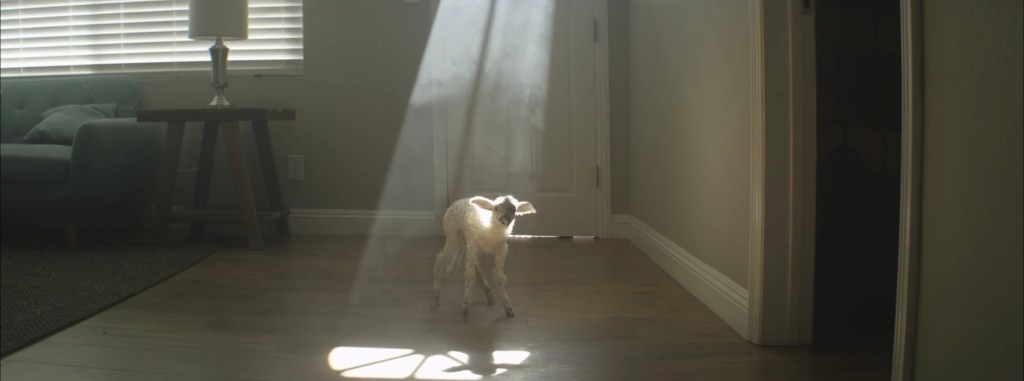
Pastor’s Kid, a film by Benjamin I. Koppin, must be a labor of love. Billed as being based on a true story, the movie does indeed function with a strong sense of authenticity, at least to my eyes. Viewers follow Riley (Courtney Bandeko), a disaffected and conflicted young woman, in the hours and days after being roofied at a bar. Our perspective trails Riley in moments of reflection and realization that attend her dismay, not only at what happened at the bar, but at the experiences she’s had her whole life. In some sense the entire film is comprised of vignettes of those reflective moments, and we pop back and forth between the present moment and key situations from Riley’s past.
Anchoring the past is young Riley, played with grace and unique presence by Marisol Miranda. The filmmakers struck gold with this actor, who mirrors the pensive inner life that Bandeko gives to older Riley. Both act well with their eyes, and the interiority suggested by their performances allows them truly own their scenes. In many ways, the world of the film orbits them. They become a still point in the midst of the tumultuous realms that surround them.

This is a film that lives in the tension between active seeking and accidental finding, between finding yourself lost and being surprised that you’ve been found. Coming as it does in the midst of a potent moment of spiritual deconstruction among younger Americans, the film is situated to strike a particular chord. It could easily have come off as preachy, or too easy, or – indeed, in one of the strongest lines from the movie – as “a cliché.” I think the filmmakers and actors managed take it beyond those kinds of trite, pedantic resolutions.
Without giving anything away, I think Pastor’s Kid is able to highlight the potential for redemption in the midst of what simply can’t be undone in our lives. We do things that can’t be taken back. Things are done to us that we alone can’t repair. Riley understands that she’s lost something of herself in the attack; that loss is disconcerting and painful. But the event is also a catalyst causing her revaluate her relationship with her estranged mother and – maybe – with her equally-estranged faith. Riley is both a protagonist and an antagonist. Will she return to numbing herself or will she allow herself to open up to past experiences and emotions? Whichever route she chooses will hurt.

Healing wounds requires touching them, and that’s the painful part; sometimes running away is the only response that seems valid. We’re all traumatized, and we all live in various states of fight, flight, or freeze. It makes sense, then, when Riley’s mother, the voice of God, and even Riley herself are left asking, “Are you done yet?” Done with anger, done with fear, done with running, done with dissipation; the viewer is left to parse the potential of that question and any answers that might follow.
Pastor’s Kid is a unique movie with intriguing pacing, strong performances, and solid, memorable characters. It feels like a distant cousin to Rian Johnson’s classic neo-noir film, Brick. Though less stylized than that movie, Pastor’s Kid is a film with a similarly confident perspective. To me, it succeeds most strongly in moments of subtlety and ambivalence. It’s a film worth your time.

On a personal note, I’ve known a lot of PKs. I’ve seen their struggles up close. It feels honorable to provide a particular view into their world in a way that feels honest and heartfelt. Kudos to Koppin and the whole writing and production team for that.
For more information, see https://pastorskidthemovie.com/
All imagery here copyright Ironside Films.
Full disclosure: the featured actor in Pastor’s Kid, Courtney Bandeko, was a model for many of my Drawing classes in the Art Program at The University of Missouri. I’m glad to know she’s gone on to do creative work she loves.